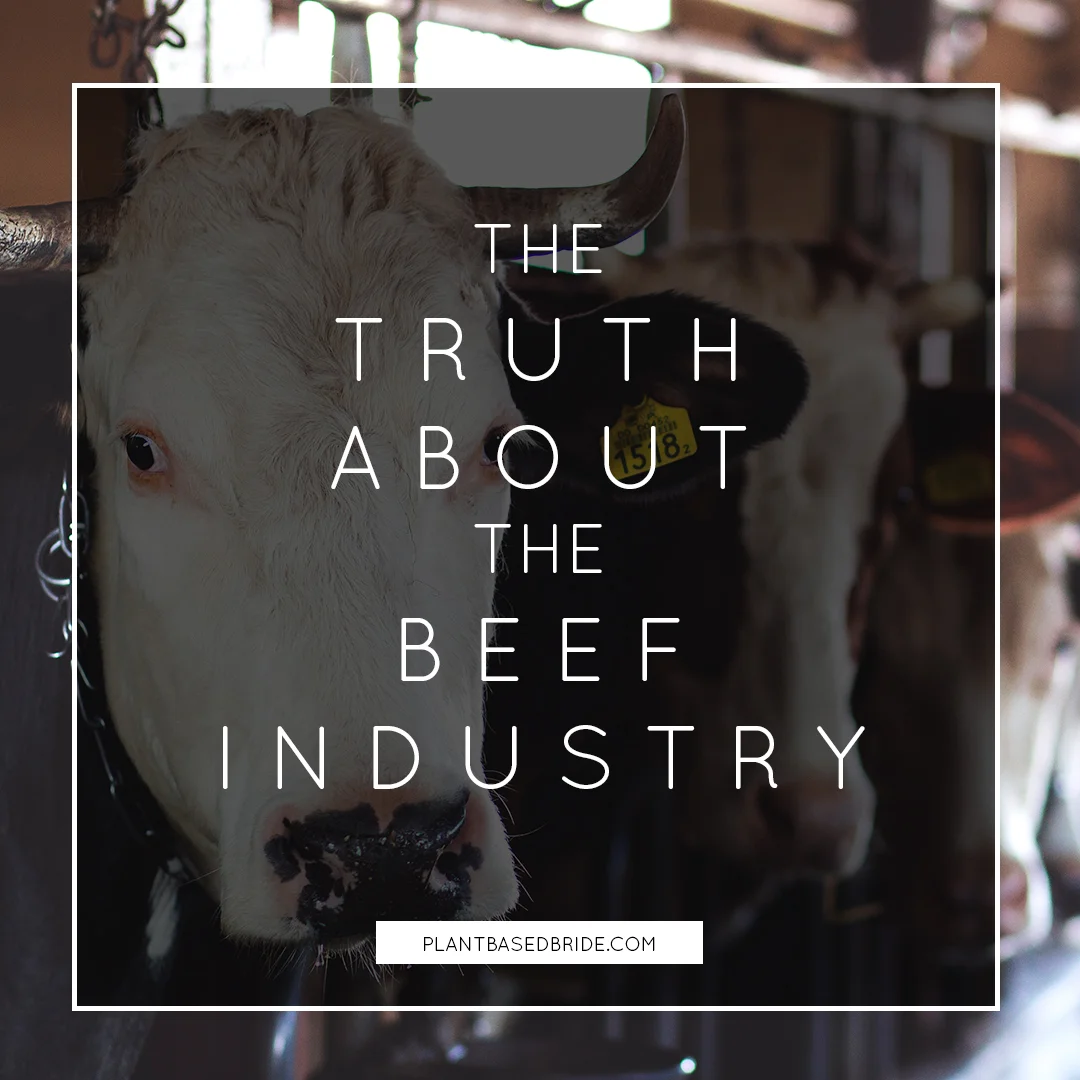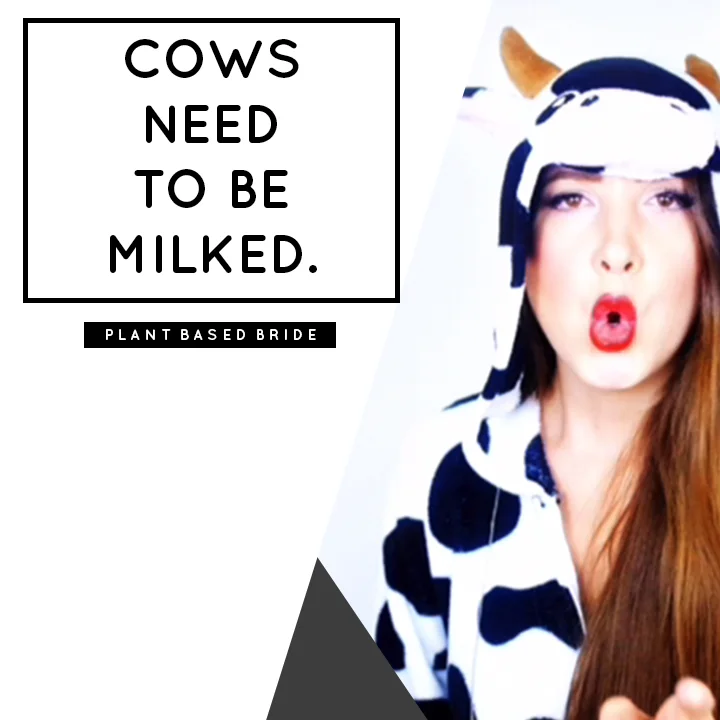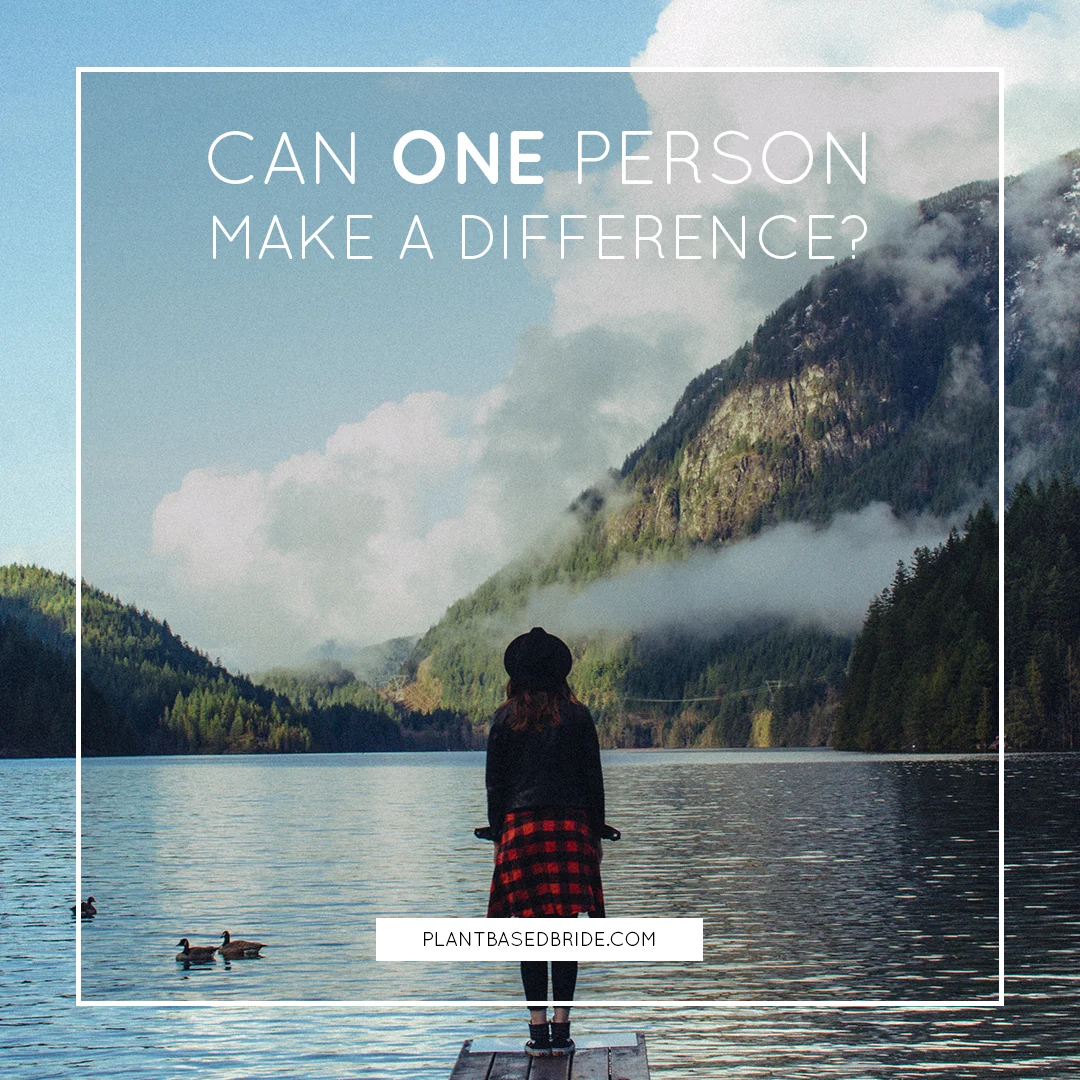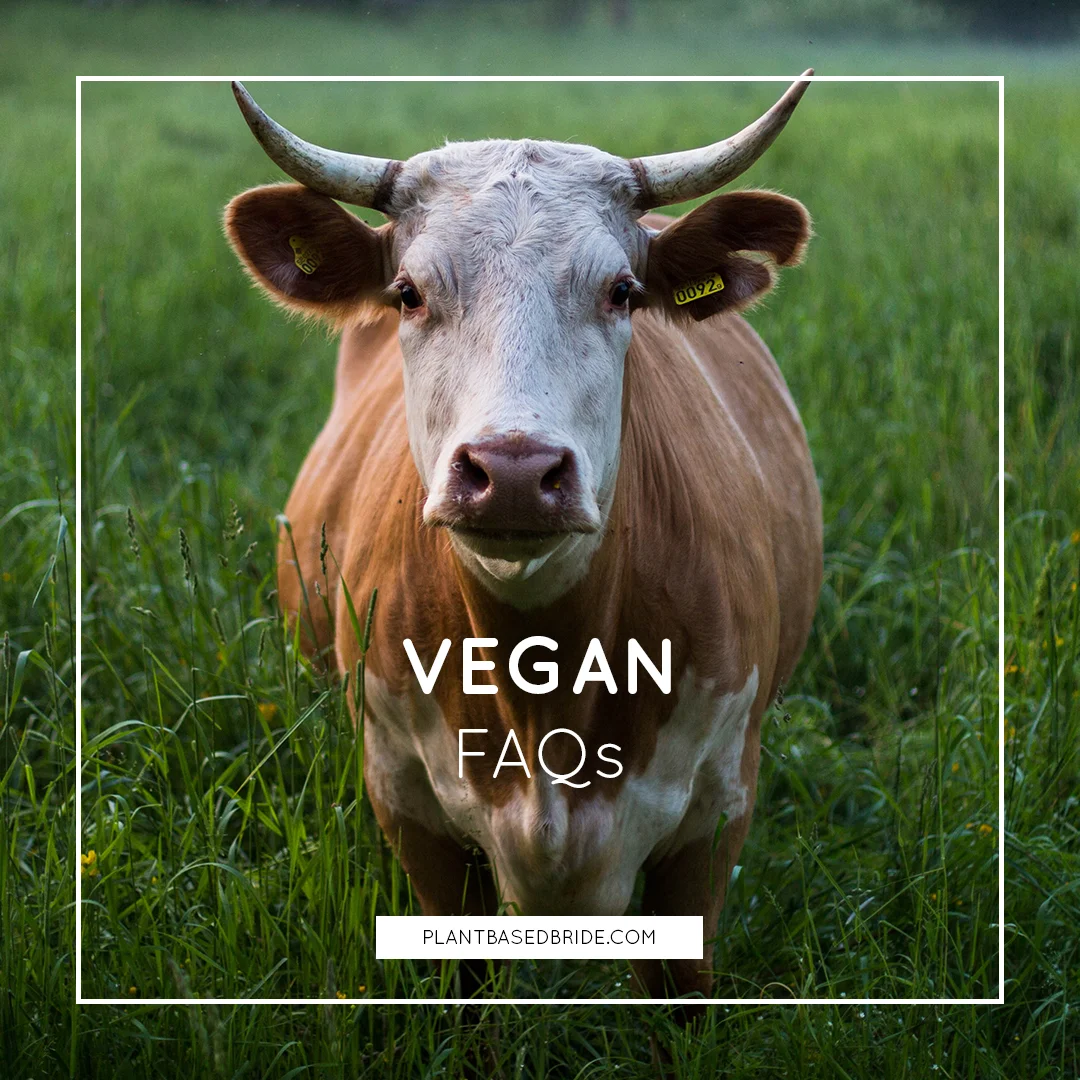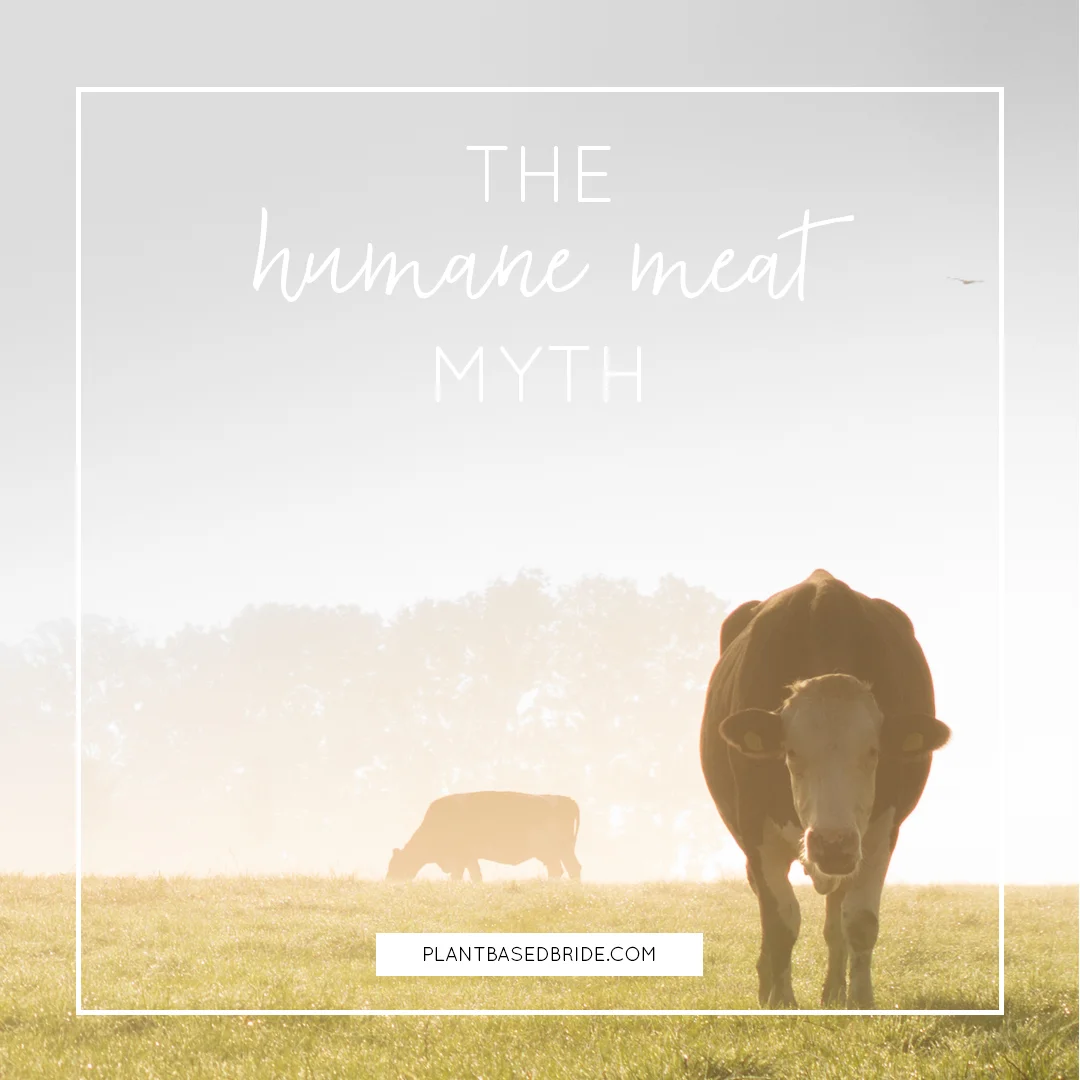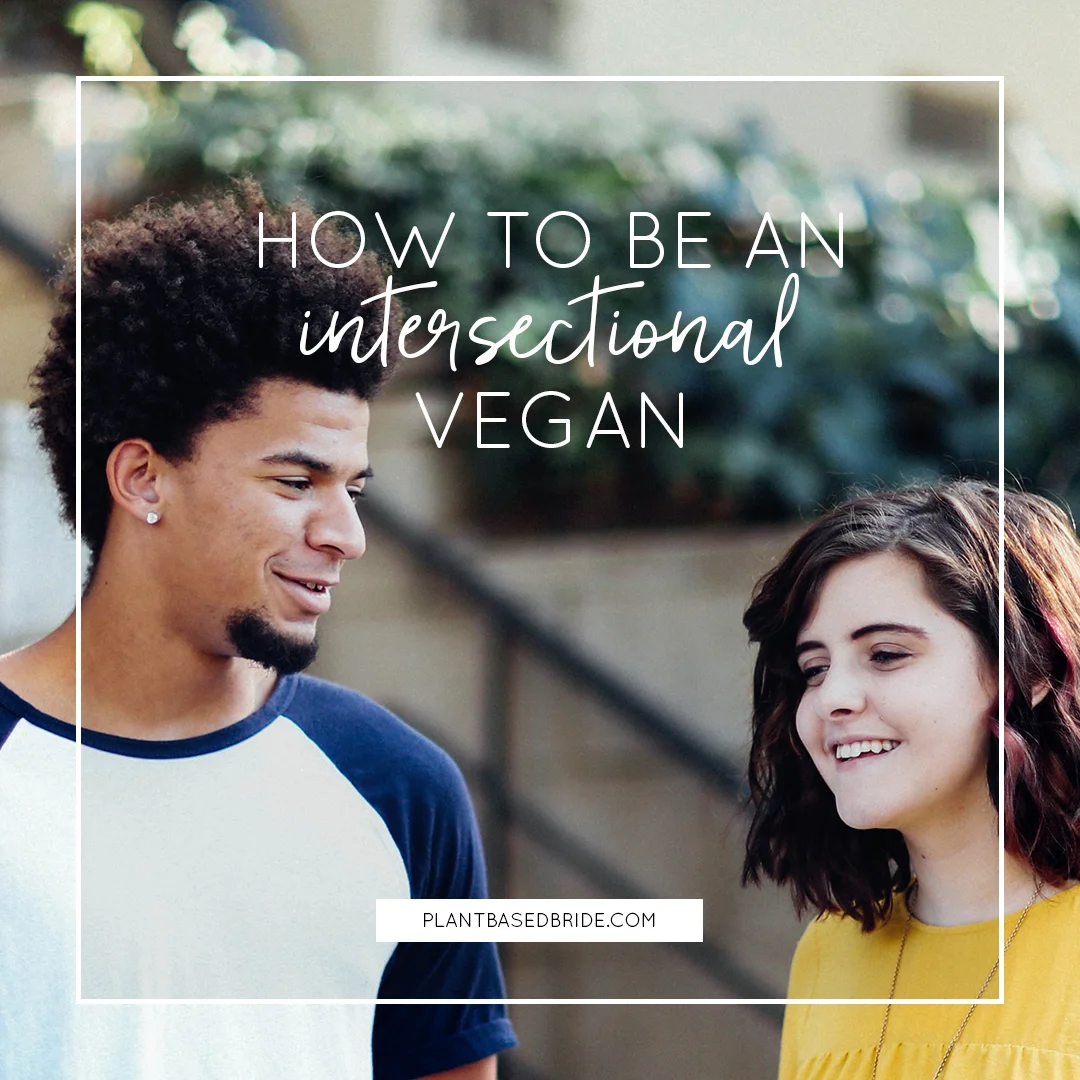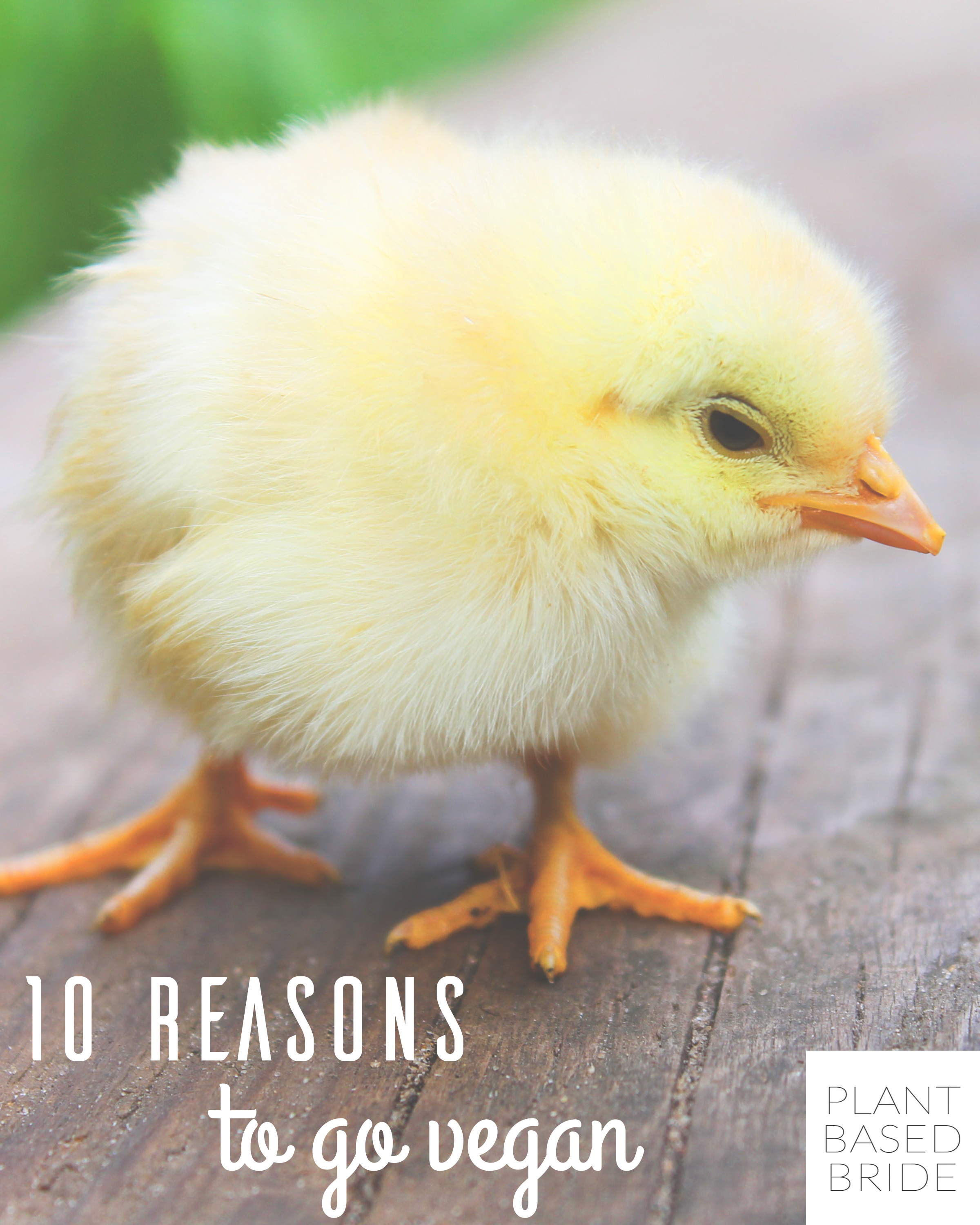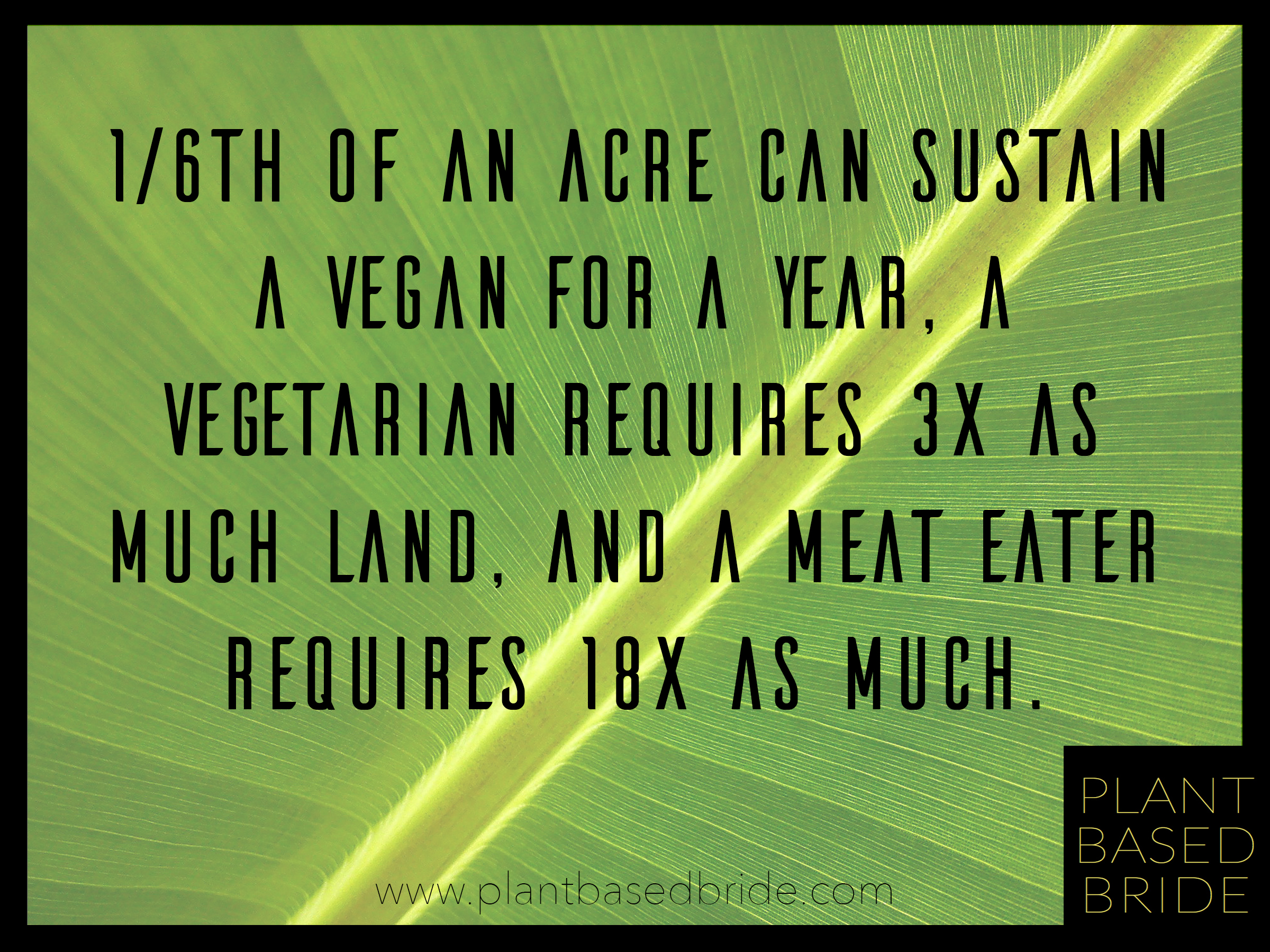
the blog.
The Truth About The Beef Industry
Unlike most animal foods, many people are not only aware of the negative impact of eating beef on their health but actively avoiding it - and they're right to.
But it's not just for health reasons that beef is a bad choice. The raising of cattle has more of an environmental impact than you might realize, and is definitely no fun for the cows.
Let's explore the truth behind the beef industry.
Unlike most animal foods, many people are not only aware of the negative impact of eating beef on their health but actively avoiding it - and they're right to.
But it's not just for health reasons that beef is a bad choice. The raising of cattle has more of an environmental impact than you might realize, and is definitely no fun for the cows.
Let's explore the truth behind the beef industry.
HEALTH
For a long time beef was seen as a 'super food', and I can understand the thought process, however misguided. Not only is beef a concentrated source of calories (which we were in dire need of for the majority of the centuries we have existed on earth) and high in protein, which we all know is the most important macronutrient. Or is it?
The Real Rundown On Protein
Dr. Garth Davis does an incredible job of debunking the protein myths in his book Proteinaholic, and I would highly suggest giving it a read for more in depth information. In the meantime, let me summarize some of the points that stood out to me the most:
You Don't Need As Much Protein As You Think
While it is true that protein is essential for human health, we don’t need nearly as much of it as we think we do. The World Health Organization published a technical report in 2002 titled Protein and Amino Acid Requirements in Human Nutrition in which they concluded that the average healthy adult of either gender requires a minimum of 0.66g of protein per day per kg of lean body weight. For example, a 150lb (68kg) person would need 44.9g of protein per day to meet the minimum of their daily protein needs - IF they had no fat on their body (not likely). They also recommend adding a buffer to guarantee "safe levels" of protein intake per day, which brings their daily recommendation up to 0.83g per kg of lean body weight. This would translate to the same 150lb (68kg) person requiring 56.4g of protein per day (once again, if they had no fat on their body. It is far more likely that their lean body mass would fall in the range of 90 to 130 lbs or approximately 41 to 59 kg. This person would actually only require 34 to 49g of protein a day, even at the higher protein recommendation.)
Surely, though, more is better? We certainly don’t want to be deficient in this important macronutrient. Dr Garth Davis hit the nail on the head when he said: “In all my years in medicine I have never, ever, seen a patient who was suffering from protein deficiency. I have searched the medical literature and cannot find a single case of protein deficiency in someone eating adequate calories.” In other words, if you are eating enough calories, you will get enough protein.
But what if we want to be on the safe side? Get just a little bit extra? That’s not really a good idea. Unlike fat and carbohydrates, the body doesn’t have a storage system for excess protein. It will instead be converted into fat or broken down into potentially toxic nitrogen components.
Animal Protein Isn't Actually Superior To Plant Protein
You may have heard of essential amino acids. These are the 9 amino acids the human body cannot create on its own, meaning they must be ingested on a regular basis. These nine essential amino acids are:
- histidine
- isoleucine
- leucine
- lysine
- methionine
- phenylalanine
- threonine
- tryptophan, and
- valine
You may have also heard that plant protein is not ideal as each individual type of plant does not contain all of the essential amino acids. This is what lead to the ‘complete protein’ craze. As meat and dairy products contain all nine, they were seen as superior sources of protein. However, it has been proven time and time again that not only do plants in their vast variety contain all of the nine essential amino acids, but that all nine do not need to be ingested at the same meal for our bodies to utilize them and synthesize important proteins. So while eating rice with beans is delicious, you needn’t eat them at the same time for your body to use the amino acids provided.
As long as you are getting a balance of amino acids over the course of the day (as in eating a variety of plant foods) your body is more than able to combine them as required for various necessary functions. There is no need to pair proteins or worry about combining foods to create complete proteins at every meal.
To doctors before the mid 20th century, animal protein must have seemed like a miracle cure. It was great at helping people to gain fat, allowing them to survive famine, resist death from infectious disease, withstand hard labour, and to live in harsh conditions. Plus, since the population rarely survived past 50 years old, any long-term negative effects of animal protein consumption had no chance to develop.
Unfortunately, nowadays we live far more sedentary lives. We live in temperate conditions protected by vaccines and with constant access to calorie-dense foods. We live well into our 80s and beyond - ample time to suffer from the less-than-ideal health impacts of too much animal protein.
We now know that we needn’t worry about getting ‘complete proteins’ so long as we ingest all of the nine essential amino acids over the course of the day. Luckily, plant foods have amino acids in abundance.
Despite this abundance, many still believe that animal protein is superior. The fact is, in essentially every well-conducted study, animal protein is associated with a long list of unwanted health defects. This list includes weight gain, diabetes, hypertension, heart disease, cancer, osteoporosis, inflammatory bowel disease, rheumatoid arthritis, gall bladder disorders, kidney stones, irritable bowel syndrome, and gout. This is due to the high cholesterol (completely absent from animal foods), saturated fat (all but absent from animal foods, other than coconuts), and uric acid found in animal protein.
An example of this effect of animal protein can be found in the people of Tunisia. From 1997 to 2009, a mere 12 years, deaths from heart disease increased 17% accompanied by an increase in cholesterol, blood pressure, and a staggering 74% increase in the obesity rate. The catalyst? The population increased their animal protein consumption from 14% all the way up to 27% of total daily calorie intake, as they transitioned from a high carbohydrate diet low in protein (with a focus on grains) to a high protein diet, doubling their milk and meat intake.
The People Who Live The Longest Don't Eat Meat
Have you ever heard of the Blue Zones? Dan Buettner’s 2010 book summarized his findings after having spoken to the groups of people with the highest longevity in the world. It is estimated that many of the blue zones (whose inhabitants often live healthily for over a century) get 70-80 % of their calories from carbohydrates, 10-15% from protein, and 8-12% from fat, which is far less than the protein intake many Westerners are aiming for of over 30%.
Do you know the kind of diet that easily lands between 10-15% protein and remains low fat? A whole foods plant based, aka vegan, diet.
Check out Proteinaholic for even more mind-blowing protein facts!
Saturated Fat
Beef is not only full of animal protein (which has been linked to cancer and a host of other diseases) but is absolutely swimming in fat, most of which is saturated.
Despite the resurgence of claims that saturated fat is good for our health, I'm going to have to burst your bubble on this one. It's not. And deep down, everyone knows it.
Consumed in high quantities (such as those found in meat) results in inflammation, higher blood cholesterol, and an increased risk of diabetes, heart disease, and cancer. As you might recall, the blue zones averaged a total fat intake of 8-12%, which is consistent with a low fat vegan diet.
Fibre
If this wasn't enough, meat contains no fibre whatsoever. Fibre is known to:
- help control blood glucose;
- reduce the risk of obesity due to its ability to increase satiation;
- regulate bowel movements;
- manage blood pressure and cholesterol (reducing the risk of heart disease), and;
- reduce the risk of cancer. (read this post for more on fibre)
So while the meat you eat is increasing your risk of dying of cancer or heart disease due to it's animal protein and high saturated fat and cholesterol content, it's also crowding out the high fibre foods from your diet that actually have the power to protect you against those very fatal diseases!
Cholesterol
It has been established that cholesterol is a significant risk factor for heart disease. But did you know that only animal products contain cholesterol? It's true that we need a small amount of cholesterol for our bodies to function normally, but we actually synthesize the cholesterol we need internally. Any we take in through our diet is in excess of our cholesterol requirements.
A clear example of this effect was observed by Dr. William Castelli, who found that amongst tens of thousands of people a heart attack never occurred in someone with a total cholesterol under 150. For reference, in the US the average cholesterol level is 210, the average for vegetarians is 161, and the average for vegans is 133.
Want more proof?
- Poland: After the Berlin wall came down, the consumption of meat dropped significantly while fruit intake increased. What happened as a result of this dietary change? A 24 percent drop in cardiac mortality.
- Finland: Once they had the highest levels of heart disease in the world, but in 1972 they began their 'North Karelia' project in which they decreased their fat intake by drastically reducing the consumption of sausage and butter and switching to vegetable oils and low-fat milk, increased fruit and vegetable intake, and cut out smoking. The result? An 80% drop in heart disease and a life expectancy increase of 7 years.
- Postmenopausal Women: A statistical analysis was conducted on 29,000 postmenopausal women over a period of 15 years. The finding? Replacing animal protein with plant protein lowered the risk of developing heart disease by 30% and replacing carbohydrates with red meat increased the risk by 33%.
- The Harvard Review: In 2014 the review demonstrated that those who have suffered a heart attack and adopt a high protein/low-carb diet are at a much higher risk of dying from their heart disease than someone consuming a high plant protein diet. The chair of Harvard’s Department of Nutrition, Dr. Walter Willet, has since stated that people should emphasize plant sources of protein rather than animal sources.
Iron
Most people are under the impression that heme iron (from animal sources) is better utilized by the human body than non-heme iron (from plant sources), and therefore a superior choice.
This is, however, just a tiny portion of the whole picture.
Yes, heme iron is the kind of iron our bodies use, and therefore the heme iron we consume can be utilized immediately without conversion. People tend to forget, however, that non-heme iron is easily converted to heme iron in our bodies and is no less suited to our needs.
Not only this, but people are completely unaware of the negative impacts the consumption of heme iron has on our bodies. Heme iron causes oxidation and is directly associated with the development of heart disease as two separate studies found in 2013. The oxidation that occurs as a result of heme iron intake also affects the pancreas' ability to secrete insulin, which can lead to diabetes. These effects are not observed with the intake of non-heme iron from plant sources.
ENVIRONMENT
If you haven't already watched Cowspiracy, allow me to suggest that you put aside 90 minutes of your day and do it! The documentary does a great job of demonstrating the effects of animal agriculture on the environment and the statistics and facts they share are absolutely staggering.
Let me give you just a taste of the shocking information they bring to light in the film (from cowspiracy.com/facts):
'Livestock and their byproducts account for at least 32,000 million tons of carbon dioxide (CO2) per year, or 51% of all worldwide greenhouse gas emissions.'
'Cows produce 150 billion gallons of methane per day.'
'Methane is 25-100 times more destructive than CO2 on a 20 year time frame.'
'Livestock is responsible for 65% of all human-related emissions of nitrous oxide – a greenhouse gas with 296 times the global warming potential of carbon dioxide, and which stays in the atmosphere for 150 years.'
'Emissions for agriculture projected to increase 80% by 2050.'
These numbers may give you pause, but never fear - reducing worldwide methane emissions by reducing the amount of animals raised for livestock drastically can make an almost immediate positive impact on reducing greenhouse gasses in our atmosphere.
But animal agriculture doesn't just effect our atmosphere.
It also has an effect on our water supply...
'2,500 gallons of water are needed to produce 1 pound of beef. ' (this is a conservative estimate and is the equivalent of showering for 2 months)
'Animal Agriculture is responsible for 20%-33% of all fresh water consumption in the world today. '
...and on our land.
'Livestock covers 45% of the earth’s total land.'
'Animal agriculture is the leading cause of species extinction, ocean dead zones, water pollution, and habitat destruction.'
'1/3 of the planet is desertified, with livestock as the leading driver.'
'Livestock operations on land have created more than 500 nitrogen flooded deadzones around the world in our oceans.'
'In the U.S. livestock produce 116,000 lbs of waste per second.'
'Animal agriculture is responsible for up to 91% of Amazon destruction.'
'1-2 acres of rainforest are cleared every second.'
'Up to137 plant, animal and insect species are lost every day due to rainforest destruction.'
So meat isn't good for our health, and it isn't good for the environment. What about the animals?
ETHICS
Life on a factory farm is no walk in the park, as you already know. But the thing is, even traditional farms are full of inherent cruelty. If we ignore the crowding of cows by the thousands in mud and feces filled lots, a traditional farm looks a whole lot like a factory farm.
They may not intentionally abuse the animals, but they:
- dehorn them (calves only a couple of weeks old will have their horn buds burned or cut out of their heads without anesthetic);
- brand them (a hot iron is placed on unanesthetized skin causing third degree burns and permenant hair loss in the area);
- castrate them (testicles of young male calves are ripped from their scrotums, without pain relievers);
- shoot them full of antibiotics to prevent disease (80% of antibiotic sold in the US are used on livestock);
- feed them unnatural diets meant to fatten them up quickly (which results in fatal liver abscesses is as many as 32% of cattle and chronic digestive pain and impaired breathing due to bloating);
- force them to breathe air that is saturated with the same gasses that cause global warming (ammonia, methane, and other noxious chemicals from manure and flatulence - giving cows chronic respiratory problems);
- keep them in environments they aren't well suited for (where they freeze to death in the winter in montana, nebraska, and north dakota and suffer heat stroke in texas and arizona in the summer), and, finally;
- kill them brutally at a young age (after as little as one year of their 20 + year projected life span, cows are sent in crowded trucks through weather extremes to the slaughterhouse where, if they have not died in transit, they will be 'shot in the head with a captive-bolt gun and hung up by one leg then have their throats cut before finally being skinned and gutted. Some cows remain fully conscious throughout the entire process. In an interview with The Washington Post, one slaughterhouse worker said, “They die piece by piece.”'). This fate is the same for every cow, whether it lived it's life crowded and sick or 'free' on the range.
Remember that cows are gentle, intelligent animals. They are curious, social, and form deep and complex relationships with other cows. They also go to extreme lengths to escape from slaughterhouses.
Perhaps they don't want to die?
If the pain and suffering of the animals isn't enough for you, what about the pain and suffering of people around the world?
World Hunger
Many people claim that eating animals is important for feeding our growing population, but in fact eating animals filters plant foods through animals and produces less food to feed people around the world.
Let me show you what I mean.
The human population on earth as of today is 7,436,280,970, and grows by around 228,000 people every day.
Around 795,000,000 people (one in nine) don't have enough food to live a healthy, active life.
We are currently growing enough plant based food to feed 10 billion people (1.35x our current population).
So where's the disconnect?
Worldwide, at least 50% of grain harvested is fed to livestock and 82% of starving children live in countries where food is fed to animals who are shipped to Western countries to be eaten.
We have enough plants to feed every single human on earth, but rather than doing that we feed half of it to animals producing 98 times less food to go around.
Say you had one acre of land.
That acre could feed 6 vegans, 2 vegetarians, or 1/3 of a meat eater for a year.
Which allows for more resources to feed the hungry?
1.5 acres can produce 37,000 pounds of plant-based food, or 375 pounds of meat.
Still worried about your protein? (Did you skip over the health section of this article??)
Well, 15x more protein can be produced on any given area of land with plants, rather than animals.
A person who follows a vegan diet produces the equivalent of 50% less carbon dioxide, uses 1/11th oil, 1/13th water, and 1/18th land compared to a meat-eater for their food and saves 1,100 gallons of water, 45 pounds of grain, 30 sq ft of forested land, 20 lbs CO2 equivalent, and one animal’s life each and every day.
Perhaps the right choice for your health, the animals, our world, and the hungry people on it is to go vegan?
Until next time,
I have not included any graphic video in this post, but if you are interested in seeing what really goes on I would suggest watching Earthlings.
The Truth About The Dairy Industry
We all know the slogans... "Got milk?" We see ads every day picturing happy cows being milked by hand and grazing in lush fields. We've been told we need dairy to build strong bones for so long it has crystallized as fact in our society. But what if the dairy industry is lying to us? The recent influx of ads in Toronto for dairy products as a defence against osteoporosis got me riled up and I haven't yet calmed down. (I wrote a this page in response.) The dairy industry is a business. They are selling a product. They do their best to convince us their product is indispensable for good health because that's what drives profit, not because it's true. Let me tell you the truth about the dairy industry, behind all of the marketing spins and selective wording.
We all know the slogans... "Got milk?" We see ads every day picturing happy cows being milked by hand and grazing in lush fields. We've been told we need dairy to build strong bones for so long it has crystallized as fact in our society. But what if the dairy industry is lying to us? The recent influx of ads in Toronto for dairy products as a defence against osteoporosis got me riled up and I haven't yet calmed down. (I wrote a this page in response.) The dairy industry is a business. They are selling a product. They do their best to convince us their product is indispensable for good health because that's what drives profit, not because it's true. Let me tell you the truth about the dairy industry, behind all of the marketing spins and selective wording.
Let's begin with the basics.
MYTH: Dairy cows produce milk on a constant basis and require human intervention for milking.
I've heard this many more times than is reasonable, considering the ease of access to information today. Let's think about this for a moment. If dairy cows produced milk constantly, and required the intervention of another, completely unrelated, species to aid in the removal of this fluid from their bodies, how did they survive up to beginning of animal agriculture? Species work in tandem in the wild, of course, but not to such an extreme extent. And why are they the only species of the more than 5,000 in the world that produce milk that do it even without having recently given birth? Well, they don't.
TRUTH: Dairy cows, like all mammals, produce milk only after giving birth and with the sole purpose of feeding their offspring.
Just like a human, a cow must become pregnant, carry their baby for nine months, and give birth to begin the lactation process.
So how do the cows in dairy farms produce milk consistently enough to satisfy the wants of the human population?
It's a simple process. When a female cow is as young as 9 months (and up to about 22 months) old she will be forcibly artificially inseminated using what the industry calls "rape racks". She will then go through a standard, 9 month pregnancy. Once she has given birth her calf will be taken from her within hours (97% of newborn calves are removed from their mothers within 12 hours, the remainder in a day or two) to prevent bonding, and she will be hooked up to milking machines until she runs dry.
In this video we see a new calf being removed from their mother, never to see each other agin. This must happen each time a cow gives birth to ensure higher productivity (why waste the mother's milk on her baby when you can sell it to the human population?)
She will give birth once a year for as many years as she can without a slowing of productivity, never having more than a day or two with any of her babies. Once she reaches an age of around 4 or 5 years, she will be slaughtered for use in ground beef and burgers. She will have only lived a fifth of her potential lifespan.
MYTH: Dairy is good for your health.
Drink milk for strong bones. Get your protein. Dairy is high in calcium and calcium helps prevent osteoporosis. We hear these claims all the time. But what if they aren't true?
TRUTH: Dairy contributes to numerous diseases, including osteoporosis.
I've written about dairy's contribution to osteoporosis here. But what about everything else?
Cow's milk is ideal for calves. It has developed over millions of years to be perfect growth food for baby cows, helping them to grow big (1,400 lbs big) and strong. And you might suppose that if cow's milk is so good for cows, it would also be good for humans. But there's a problem with this theory. Cow's milk is not made for humans. Each species on this earth that produces milk produces a specific kind formulated perfectly for their individual species. Cow's milk has a protein content formulated for a species that doubles in size 4x faster than humans are meant to. And we wonder why obesity has become such a widespread issue! (Pardon the pun.)
Cow's milk also has about 4x the amount of calcium per calorie than human milk (194mg/100 cal (cow's milk) vs 45mg/100 cal (human milk)). This is far more calcium than we require. If we did require that level of calcium, human milk would have that amount. So why doesn't it? Perhaps because it's unnecessary to human health!
Calcium is a mineral that originates from the ground. Not from milk, not even from plants. It gets into the plants after dissolving in water in the soil and being absorbed by the plants' roots. It is then utilized in all areas of the plant. Animals can now eat the plants and absorb calcium for themselves, including we humans! We need never eat dairy or meat to meet our calcium requirements.
Much of the research done on the impact dairy on our health has been paid for by the dairy industry and is therefore skewed to fit their needs. They don't want you to know that dairy consumption promotes:
- obesity;
- type 1 diabetes;
- autoimmune diseases such as arthritis and multiple sclerosis (MS);
- high cholesterol;
- osteoporosis;
- heart disease, and;
- insulin-like growth factor 1 (IGF-1) in the body. (IGF-1 has been strongly linked to the development of various cancers such as breast, prostate, lung, and colon cancer. It inhibits cell death while stimulating cell production, which is a deadly cocktail when you have cancer cells in your body.)
Want to learn more about the negative health effects of consuming dairy? Check out these articles written by:
And take a gander at this video:
MYTH: The dairy industry does not contribute to the killing of innocent animals.
This is a common vegetarian's argument, and I once agreed with them. But unfortunately for these loving, intelligent creatures, it just isn't true.
TRUTH: The longest a dairy cow will be allowed to live is about 5 years. There are over 264 million dairy cows worldwide. You do the math.
As I mentioned, once a cow's productivity begins to slow between 4-5 years she will be sent to the slaughterhouse to become beef. But what of her babies? If they're female they will likely follow in their mother's footsteps, and be killed in half a decade when they are spent. But what about the males, who cannot produce milk? Many of them are chained in small wooden crates for 16 weeks and then slaughtered for veal. Others are raised to the ripe old age of 18 months before they are killed for beef. (Remember, a cow's natural lifespan can be in excess of 20-25 years). The grand total deaths for these male calves each year globally? 21 million.
MYTH: Transportation is the biggest source of emissions and contributor to global warming.
TRUTH: The animal agriculture industry contributes 51% of all worldwide greenhouse gas emissions. (And that's not all.)
If you have not yet watched Cowspiracy, bump it up to the first spot on your to-watch list and start right after you finish reading this article! It's on Netflix, so it's as easy as watching a couple episodes of your favourite show, but has a much more important message. The way they explain the environmental impact of animal agriculture is so clear and yet so shocking that even the many vegans I know were completely flabbergasted by their findings. Our planet is in much more dire condition than we know.
For those of you who are at work and can't take the time to watch a full length documentary (until you get home, of course!) I will summarize some of the film's points, sourced from the Cowspiracy Facts page:
MYTH: Cows in dairy farms are treated kindly and given adequate space, rest, and comfort.
TRUTH: Many cows in dairy farms are kept in atrocious conditions, and all are subjected to unnecessary mutilation and deprivation.
This video is graphic and not easy to watch. But if millions of innocent creatures can be subjected to this kind of horrific treatment every single day of their lives for human benefit, we can watch a short compilation of the injustices billions are supporting with their hard earned money and use it as motivation to create change.
MYTH: These negative actions are only on the part of large factory farms, not small "family" dairies.
TRUTH: This is the same whether we are talking about a small "family" dairy farm or a large factory farm.
While the living conditions themselves may be better, and the outright cruelty on the part of workers may be to a lesser extent or non-existent, mutilation in various forms is used across the entire industry, as a matter of standard procedure. Also, because farmers do not slaughter their own cows, they cannot ensure that the slaughterhouses are not subjecting their animals to further pain and suffering, above and beyond their murder.
Some of this information might have shocked you, or made you feel upset, angry or defensive. And that's completely OK. The important thing is what you do as a result. Getting angry at me, or any other person trying to spread this information, won't help you, let alone the animals or our planet. What will help is a reduction or elimination of your dairy consumption.
10 Tips To Help You Go Dairy-Free
I'm not trying to judge you, or tell you you're wrong. I'm trying to provide you with the information that I wish I'd known 20 years earlier than I did. I'm trying to look out for you, the animals, and the planet we call home. What are you trying to do?
Until next time,
Considering giving up dairy but not sure where to start? Feel free to send me an email at plantbasedbride@gmail.com and I will do my best to help you along in your journey!
Sources & Further Reading
- http://plantbasedbride.com/blog/building-strong-bones-with-plants
- http://www.peta.org/issues/animals-used-for-food/animals-used-food-factsheets/cows-milk-cruel-unhealthy-product/
- http://freefromharm.org/dairyfacts/
- http://plantbasedbride.com/osteoporosis
- http://milkiscruel.com
- https://www.aphis.usda.gov/animal_health/nahms/dairy/downloads/dairy07/Dairy07_is_ReprodPrac.pdf
- http://plantbasedbride.com/blog/ph
- http://www.indexmundi.com/agriculture/?commodity=cattle&graph=calf-slaughter
- https://www.ciwf.org.uk/media/5235182/Statistics-Dairy-cows.pdf
- http://nutritionstudies.org/12-frightening-facts-milk/
- http://www.peta.org/issues/animals-used-for-food/animals-used-food-factsheets/cows-milk-cruel-unhealthy-product/
- http://www.cowspiracy.com/facts/
- http://awfw.org/factory-farms/
10 Reasons to Go Vegan!
Are you sitting on the fence, unsure about taking the leap into veganism? I understand. It took me 8 months of debating and researching after going vegetarian before I made the change. Now I wish that I'd gone vegan years earlier! As they say, hindsight is always 20/20. Perhaps you'll benefit from my hindsight by reading my top 10 reasons to go vegan!
Are you sitting on the fence, unsure about taking the leap into veganism? I understand. It took me 8 months of debating and researching after going vegetarian before I made the change. Now I wish that I'd gone vegan years earlier! As they say, hindsight is always 20/20. Perhaps you'll benefit from my experience by checking out my top 10 reasons to go vegan! (This post contains some affiliate links.)
1. Improve Your Health - Cutting out animal products is good for you! Meat and dairy products are full of hormones, antibiotics, cholesterol, and acidify the body. (Check out this post for a brief explanation of body pH). With a diet consisting of whole plant foods you are all but guaranteed to get sufficient amounts of the nutrients you need, as long as you get a wide variety. (There is a debate on how available B12 is in a vegan diet, so I make sure to take a supplement.) Eating a diet high in fibre, low in fat, and full of vitamins and minerals will lower your risk of diabetes, heart disease, high blood pressure, Alzheimer's, and a whole host of cancers. So ditch the animal products and eat your vegetables!
Want to know more about the health benefits of going plant based? Check out some of my favourite books on the topic:
2. Lose Weight - Have a goal to drop a couple of pounds? Consider going vegan! Vegans are 10-20 lbs lighter than meat eaters, on average, and have lower rates of obesity. Eating foods that are lower on the caloric density scale (like fruits and vegetables) more often can lead to almost effortless weight loss.
Interested in how to lose weight on a vegan diet? Rip Esselstyn's book is a great one to check out:
3. Save Animals' Lives - Are you an animal lover? Then why discriminate between species? Did you know that pigs can learn to play video games and are smarter than dogs? Did you know that the intelligence of chickens has been compared to that of monkeys? Did you know that cows have best friends and get stressed when they are separated from them? One vegan saves more than 100 animals a year. You'll love the feeling you get knowing that you no longer contribute to the killing of any sentient beings for your nourishment!
Want to learn more about the animals commonly killed for your food? Check out this article about the emotional lives of cows, this one about the intelligence of chickens, and this one about pigs showing how incredibly smart and adorable they are.
4. Stop Animal Cruelty - Factory farms are horrible places. Animals are stuffed into wire cages and metal crates within windowless, filthy, buildings to live out their short, unhappy lives. They never get to raise their offspring, build complex social relationships, or interact with their natural environment. Many will never feel the warmth of the sun or breathe fresh air. Factory farms are run as a business dealing in a commodity, not living creatures. Their goal is increasing profit, not the quality of life of their captives. The more animals they can squeeze in, the more money they can make; even with the increased death toll from disease and infection. And if the plight of animals doesn't move you, think about yourself. Did you know that the meat you eat is often contaminated with feces, blood, and other bodily fluids; causing many cases of food poisoning around the world? Or that the antibiotics pumped into animals to prevent excessive death from their subpar living conditions is having a negative impact on your health when you consume their flesh?
It's time to open your eyes to what animal agriculture has become. Ready to learn the truth about where your food comes from? Check out the documentary Earthlings or read the book that made me go vegan:
5. Help People - Factory farming doesn't just hurt animals, it also has a negative impact on the workers and the people who live in close proximity to their facilities. The large amounts of feces sprayed into the air by these farms have resulted in huge increases in human respiratory problems, and the new, resistant, bacterial strains developed due to the overuse of antibiotics in animals are a serious threat to human health all around the world. Poor sanitation and waste management can lead to E.coli and salmonella contamination in our food supply, causing millions to become sick each year, and even die. Zoonotic diseases, those that can be transmitted from animals of other species to humans, like swine flu, are caused by overcrowding and poor waste management on factory farms and result in many human deaths.
Not only does going vegan reduce these negative effects, but it can have a wonderful, global, impact on feeding the hungry. It is estimated that almost a billion humans are suffering from hunger, and almost 900 million of malnutrition. Every year, starvation is the cause of death for over 2.5 million children under the age of five. But we are producing enough food to feed every single human being on earth! So where is all of that food going? A study in 2013 from scientists at the Institute on the Environment and the University of Minnesota demonstrated that if all food crops grown on earth were fed directly to humans, rather than to our livestock, approximately 70% more food would become available for human consumption, feeding 4 billion additional people. This surplus would not only feed the billion hungry people on earth, but an additional 3 billion people, an important fact when studies of human population growth estimate an increase of 3 billion people in less than 100 years.
Still not convinced? Let me break it down further. Cows are not very efficient at turning the food they eat into muscle. This is clear when you look at the numbers: one pound of beef (cow muscle) requires 13-20 pounds of grain to be produced. Put another way, 13-20 times more people could be fed if the grains were eaten directly, rather than to the cow. While pigs and chickens are slightly more efficient, it still requires 7 pounds of grain to produce one pound of pork and 4.5 pounds of grain to produce one pound of chicken. Why are any of the people passionately speaking out about world hunger continuing to eat meat?
Read more about feeding the hungry with plants here and for further information about the negative impact of factory farms on people, see here.
6. Save The Planet - There is no other human action with a greater negative impact on the environment than the raising of livestock for human consumption: the meat industry contributes as much as 51% of man-made pollution, more than all forms of transportation combined (sitting at around 13%). Not only that, but methane gas from livestock is 25-100 times more destructive to the atmosphere than carbon dioxide from vehicles. Did you know that even if we stopped all use of gas, oil, or fuel from today onwards, we would still exceed our maximum carbon equivalent greenhouse gas emissions (565 gigatons) by 2030, exclusively from the raising and eating of livestock? Reducing methane emissions makes an almost immediate (within decades) impact on methane levels in the atmosphere, while reducing CO2 emissions doesn't have a significant effect for as long as 100 years.
One calorie of beef requires 160 times more land to produce than one calorie of potatoes or rice, and causes 11 times more greenhouse gas emissions. Overspilled manure from farm land increases the phosphorus and nitrogen levels in the water supply, reducing oxygen levels and killing aquatic life. Deforestation for the use of livestock farming and agriculture of feed crops (the cause of 91% of the destruction of the planet's rainforests) emits approximately 2.4 billion tons of CO2 yearly. A quatre pound hamburger takes over 660 gallons of water to produce (the equivalent of showering for 2 months straight). 116,000 pounds of excrement is produced every second in the United States alone from farmed animals. Animal agriculture uses 1/3 of the world's fresh water and 45% of the earth's land. Going vegan is the absolute best way to reduce your impact on the environment and do your part to save our planet.
Want to learn more about the environmental impact of animal agriculture? Watch Cowspiracy, an incredible documentary on the subject.
7. Plant Based Food Is Delicious - And I don't just mean meat and dairy substitutes or desserts. After a couple of weeks on a vegan diet you will notice your taste buds change and will be able to distinguish and appreciate the subtly delicious tastes of plant foods in their natural state! (Although, coconut ice cream is to die for.) I dare you to go to a vegan restaurant in your city and not find something delicious!
Want examples of mouth-watering vegan dishes? Look no further than these instagram accounts.
8. Live Longer - Thrive on a vegan diet for years longer than your meat eating friends. Vegans have been shown to live as many as 9 years longer than omnivores due to reduced deaths from illnesses like cancer and heart disease and increased health and vitality from an abundance of nutrients. What could you accomplish in an extra decade of life? Why not find out!
9. Join The Ranks - Did you know that Ellen DeGeneres, Portia de Rossi, Kristen Bell, Natalie Portman, Kate and Rooney Mara, Jessica Chastain, Emily Deschanel, Ellen Page, Jared Leto, Michelle Pfeiffer, Carrie Underwood, and Alicia Silverstone are all vegan? The movement isn't just full of celebrities. Many incredible athletes have made the switch: Brendan Brazier, Robert Cheeke, Rich Roll, Robert Hazely, Georges Laraque, Carl Lewis, Jack Lindquist, Mike Mahler, Patrick J Neshek, Fiona Oakes, Amanda Reister, Jim Morris, and so many more!
If celebrities under all of the pressures of Hollywood and athletes competing at international levels can thrive on a plant based diet, why can't you?
Related Blog Post: Vegans vs Protein
10. Be Happier - Go vegan for a healthy mind: you'll have lower incidences of anxiety and depression than meat eaters! Magnesium, which is plentiful in plant foods and virtuality non-existent in animal products, is important for energy, improving sleep, and regulating your mood while reducing headaches.
You'll also be happier knowing that every single day you're saving 1100 gallons of water, 45 pounds of grain, 30 square feet of forest, 20 pounds of CO2, and one animal's life. Every single day. If you could make that kind of positive impact on the world, would you?
You can. No other choice has such a profound impact on the health of the planet in every single aspect.
Make a change. Go vegan!
Until next time,
Which reason resonates the most with you? Why did you go vegan? Let me know in the comments below!
Subscribe to the Plant Based Bride newsletter to never miss a blog post. Find the form at the bottom of this page!

